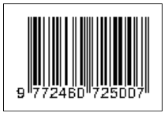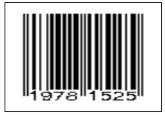Sentiment Analysis Of Government Policy On Corona Case Using Naive Bayes Algorithm
Auliya Rahman Isnain(1), Nurman Satya Marga(2), Debby Alita(3*)
(1) Fakultas Teknik dan Ilmu Komputer, Universitas Teknokrat Indonesia, Lampung
(2) Fakultas Teknik dan Ilmu Komputer, Universitas Teknokrat Indonesia, Lampung
(3) Fakultas Teknik dan Ilmu Komputer, Universitas Teknokrat Indonesia, Lampung
(*) Corresponding Author
Abstract
The Indonesian government has enforced the New Normal rule in maintaining economic stabilization and also restraining the spread of the virus during the Covid 19 pandemic. This has become a hot topic of conversation on social media Twitter, many people think positive and negative.
The research conducted is a representation of text mining and text processing using machine learning using the Naive Bayes Classifier classification method, the objective of the analysis is to determine whether public sentiment towards the New Normal policy is positive or negative, and also as a basis for measuring the performance of the TF-IDF feature extraction and N-gram in machine learning uses the Naive Bayes method.
The results of this study resulted in the accuracy rate of the Naive Bayes method with the TF-IDF feature selection. The total accuracy was 81% with a Precision value of 78%, Recall 91%, and f1-Score 84%. The highest results were obtained from the use of the Naive Bayes and Trigram algorithm parameters, namely 84%, namely 84% Precision, 86% Recall, and 85% f1-Score. The Naive Bayes algorithm with the use of the trigram type N-Gram feature extraction shows a fairly good performance in the process of classifying public tweet data.
Keywords
Full Text:
PDFReferences
[1] I. Alfina, R. Mulia, M. I. Fanany, and Y. Ekanata, “Hate Speech Detection in the Indonesian Language : A Dataset and Preliminary Study,” in 9th Int. Conf. Adv. Comput. Sci. Inf. Syst. (ICACSIS 2017), 2017, no. October.
[2] A. R. Isnain, A. Sihabuddin, and Y. Suyanto, “Bidirectional Long Short Term Memory Method and Word2vec Extraction Approach for Hate Speech Detection,” IJCCS (Indonesian J. Comput. Cybern. Syst., vol. 14, no. 2, p. 169, 2020.
[3] M. A. Nurrohmat and A. SN, “Sentiment Analysis of Novel Review Using Long Short-Term Memory Method,” IJCCS (Indonesian J. Comput. Cybern. Syst., vol. 13, no. 3, p. 209, 2019.
[4] N. Saputra, T. B. Adji, and A. E. Permanasari, “Analisis Sentimen Data Presiden Jokowi dengan Preprocessing Normalisasi dan Stemming Menggunakan Metode Naive Bayes dan SVM,” J. Din. Inform., vol. 5, no. November, p. 12, 2015.
[5] D. Alita, Y. Fernando, and H. Sulistiani, “Sentiment Ana,” Tekno Kompak, vol. 14, no. 2, pp. 86–91, 2020.
[6] R. R. Suryono and I. Budi, “P2P Lending Sentiment Analysis in Indonesian Online News,” vol. 172, no. Siconian 2019, 2019.
[7] N. D. Putranti and E. Winarko, “Analisis Sentimen Twitter untuk Teks Berbahasa Indonesia dengan Maximum Entropy dan Support Vector Machine,” IJCCS (Indonesian J. Comput. Cybern. Syst., vol. 8, no. 1, p. 91, 2014.
[8] J. Patihullah and E. Winarko, “Hate Speech Detection for Indonesia Tweets Using Word Embedding And Gated Recurrent Unit,” IJCCS (Indonesian J. Comput. Cybern. Syst., vol. 13, no. 1, p. 43, 2019.
[9] L. Juen, I. P. E. N. Kencana, and T. B. Oka, “Analisis Sentimen Menggunakan Metode Naïve Bayes Classifier Dengan Seleksi Fitur Chi Square,” E-Jurnal Mat., vol. 3, no. 3, p. 92, 2014.
[10] Y. Woldemariam, “Sentiment analysis in a cross-media analysis framework,” 2016 IEEE Int. Conf. Big Data Anal., pp. 1–5, 2016.
[11] M. Wongkar and A. Angdresey, “Sentiment Analysis Using Naive Bayes Algorithm Of The Data Crawler: Twitter,” Proc. 2019 4th Int. Conf. Informatics Comput. ICIC 2019, pp. 1–5, 2019.
[12] R. Hidayatillah, M. Mirwan, M. Hakam, and A. Nugroho, “Levels of Political Participation Based on Naive Bayes Classifier,” IJCCS (Indonesian J. Comput. Cybern. Syst., vol. 13, no. 1, p. 73, 2019.
Article Metrics
Refbacks
- There are currently no refbacks.
Copyright (c) 2021 IJCCS (Indonesian Journal of Computing and Cybernetics Systems)

This work is licensed under a Creative Commons Attribution-ShareAlike 4.0 International License.
View My Stats1







